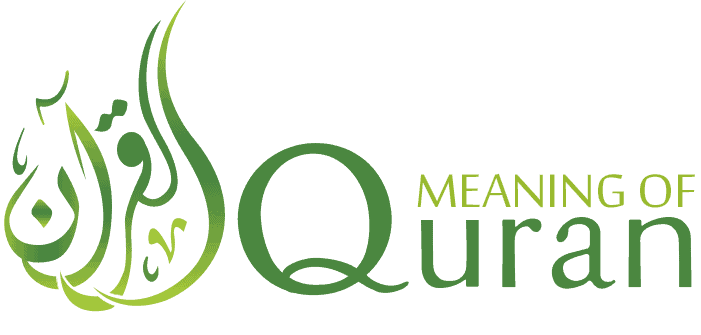At-Tin | The Fig
With the name of Allah, the All-Merciful, the Very-Merciful.
[95:1] I swear by the Fig and the Olive,
[95:2] and by Tur, the mount of Sinai,
[95:3] and by this peaceful city,
[95:4] We have created man in the best composition,
[95:5] then We turned him into the lowest of the low,
[95:6] except those who believed and did righteous deeds, because for them there is a reward never-ending.
[95:7] So, what can make you, after all this, to deny the Requital?
[95:8] Is Allah not the Greatest Ruler of all the rulers?
With the name of Allah, the All-Merciful, the Very-Merciful.
[95:1] I swear by the Fig and the Olive,
[95:2] and by Tur, the mount of Sinai,
[95:3] and by this peaceful city,
[95:4] We have created man in the best composition,
[95:5] then We turned him into the lowest of the low,
[95:6] except those who believed and did righteous deeds, because for them there is a reward never-ending.
[95:7] So, what can make you, after all this, to deny the Requital?
[95:8] Is Allah not the Greatest Ruler of all the rulers?
Tafsir
Overview of Surah At-Tin
- Title and Position: Surah At-Tin is the 95th chapter of the Quran. The title “At-Tin” translates to “The Fig,” referring to the fig tree mentioned at the beginning of the surah, which, along with the olive, is part of an oath that underscores the subsequent messages.
- Verses and Structure: This surah contains 8 verses. It is known for its oaths by significant religious symbols and its profound declaration about human creation and potential.
- Themes and Messages: Major themes include the divine oath by the fig and the olive, the sanctity of religious sites, the creation of humanity in the best stature, the potential for human degradation, and the inevitability of judgment.
- Significance in Islamic Thought: Surah At-Tin is significant for its emphasis on human dignity and potential, the moral and spiritual consequences of human actions, and the assurance of divine justice.
Detailed Explanation
- Divine Oaths: The surah begins with oaths by the fig and the olive, Mount Sinai, and the city of Mecca, symbolizing the divine messages given to humanity throughout history and the sanctified places associated with these revelations.
- Human Creation and Potential: It asserts that humans have been created in the best stature, highlighting the inherent nobility and potential for excellence endowed by God to humanity.
- Moral Decline and Accountability: The surah warns that despite this noble creation, humans can degrade themselves through wrongful actions, but they will be accountable to God, who is the most just Judge.
- Call to Righteousness: The emphasis on judgment serves as a reminder of the moral choices individuals must make, urging them to adhere to righteousness to achieve the best stature both in this world and the hereafter.
- Universal Message: While the surah begins with specific oaths, its message is universal, addressing the essence of human existence, ethical conduct, and divine accountability.
FAQs
- Why is Surah At-Tin named “The Fig”?
- The surah is named “At-Tin” because it begins with an oath by the fig, symbolizing the sacredness and significance of God’s creation and the lessons derived from these natural symbols.
- What does the surah imply by stating humans are created in the best stature?
- It implies that humans are endowed with inherent dignity, potential for intellectual and spiritual excellence, and the capacity to choose righteousness, reflecting the high status given to them by God.
- How does Surah At-Tin address the concept of judgment?
- It underscores the inevitability of judgment, emphasizing that every individual’s actions are subject to divine scrutiny, reinforcing the importance of moral responsibility and ethical conduct.
- What lesson can be drawn from the contrast presented between human potential and degradation?
- The lesson is that humans have the unique ability to reach the highest moral and spiritual levels but can also fall into the lowest depths through their choices, highlighting the importance of striving for righteousness and the consequences of one’s actions.
- The surah is named “At-Tin” because it begins with an oath by the fig, symbolizing the sacredness and significance of God’s creation and the lessons derived from these natural symbols.
- It implies that humans are endowed with inherent dignity, potential for intellectual and spiritual excellence, and the capacity to choose righteousness, reflecting the high status given to them by God.
- It underscores the inevitability of judgment, emphasizing that every individual’s actions are subject to divine scrutiny, reinforcing the importance of moral responsibility and ethical conduct.
- The lesson is that humans have the unique ability to reach the highest moral and spiritual levels but can also fall into the lowest depths through their choices, highlighting the importance of striving for righteousness and the consequences of one’s actions.
Read more
